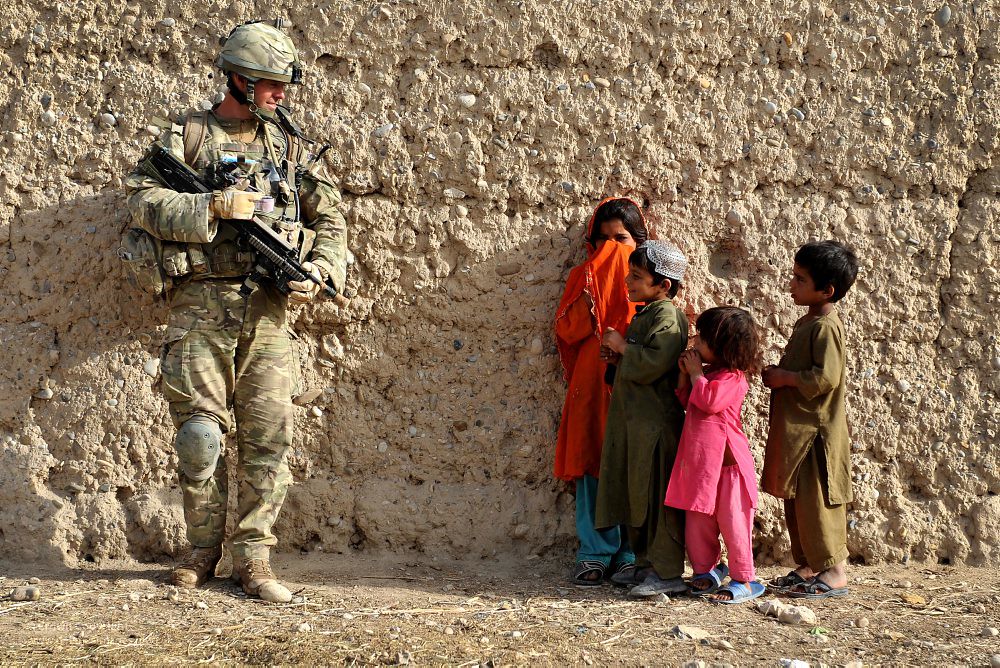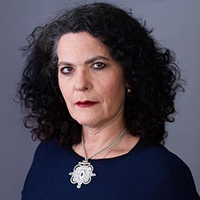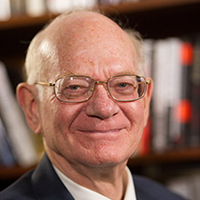Afghanistan: Past, Present and Future

Afghanistan: Past, Present, and Future
Thurs. September 21, 2021
3:30pm-4:30 pm
- About The Event
- About The Speakers
- Watch the Recording
- Blog Post
-
At the end of August, the United States left Afghanistan, concluding a twenty-year mission. Why was the US in Afghanistan for so long? What are the geo-political consequences of the decision to leave? What will happen now to Afghanistan and to Afghan women under the new Taliban regime? And what can the international community do to help? The Global Policy Institute held a roundtable conversation with prominent Afghanistan experts that provided answers to these critical questions.
About Loyola Marymount University
LMU is a private Catholic university with 6,000 undergraduates, 2,200 graduate students and 1,100 law students from diverse backgrounds and many perspectives. Our seven colleges and schools boast best-in-the-nation programs in film and television, business, education and more. Our stunning campus in West Los Angeles is a sun-soaked oasis overlooking the Pacific coast and a model of sustainability. We're rooted in the heart of Los Angeles, a global capital for arts and entertainment, innovation and technology, business and entrepreneurship. Our mission is grounded in a centuries-old Jesuit educational tradition that produces extraordinary men and women dedicated to service and social justice. We're proud of more than 85,000 LMU alumni whose professional achievements are matched by a deep commitment to improving the lives of others.
Heather Barr, Associate Director of the Women’s Rights Division and former Afghanistan researcher, Human Rights Watch

Heather Barr joined Human Rights Watch in 2011 as the Afghanistan researcher, before becoming the Associate Director of the Women’s Rights Division. She previously worked for the United Nations in Afghanistan and Burundi. She has done research on child marriage, girls’ education, violence against women, refugee and prisoners’ rights.
Ronald E. Neumann, US Ambassador to Afghanistan (2005-2007)

Formerly a Deputy Assistant Secretary of State, Ronald E. Neumann served three times as Ambassador to Algeria, Bahrain and Afghanistan. Mr. Neumann also served in Baghdad in 2004 with the Coalition Provisional Authority and as Embassy Baghdad’s liaison with the Multinational Command. He is currently the President of the American Academy for Diplomacy.
Dr. Orzala Nemat
Dr. Orzala Nemat is a research associate at the School of Oriental and African Studies (SOAS), London. She was born in Afghanistan and, at a young age, forced to flee to Pakistan, where she lived for more than ten years as a refugee. Active for over two decades in the development field in Afghanistan, she founded and led a humanitarian organization between 1999 and 2006. She then obtained a PhD from SOAS. After her PhD, she moved back to Afghanistan and briefly became the Afghan president's advisor on local governance. Since 2016 she has been leading Afghanistan’s top research think tank, Afghanistan Research and Evaluation Unit (AREU).
Afghanistan: Past, Present and Future
On September 21, 2021, the Global Policy Institute (GPI) hosted its first event of the 2021-2022 academic year. The event analyzed the repercussions of the Taliban takeover in Afghanistan. For this event, GPI hosted Ronald E. Neumann, US Ambassador to Afghanistan (2005-2007); Heather Barr, Associate Director of the Women’s Rights Division and former Afghanistan researcher at Human Rights Watch; and Dr. Orzala Nemat, head of Afghanistan’s top research think tank, Afghanistan Research and Evaluation Unit (AREU).
The speakers shared their experiences in Afghanistan and reflected on the struggles that the Afghan people have been facing since the rise of the Taliban. They explained how during their time in Afghanistan, before the Taliban took over, women played an important role in society by being able to pursue an education and becoming government officials. The speakers agreed that the rise of the Taliban leaves an uncertain future, especially for women and young people.
Now that the Taliban has taken control, the United States and its allies will likely have to find ways to collaborate with the Taliban regime, the group they once fought on Afghan soil. It is still unclear whether the Taliban will be interested in such cooperation. But it is certain that the American withdrawal will have consequences for US foreign policy in the region and beyond. As Ambassador Neumann noticed, some countries may come to the conclusion that “the United States is too unreliable to trust even if it is too large to ignore.”
Written by Kevin Errasquin, GPI Undergraduate Fellow